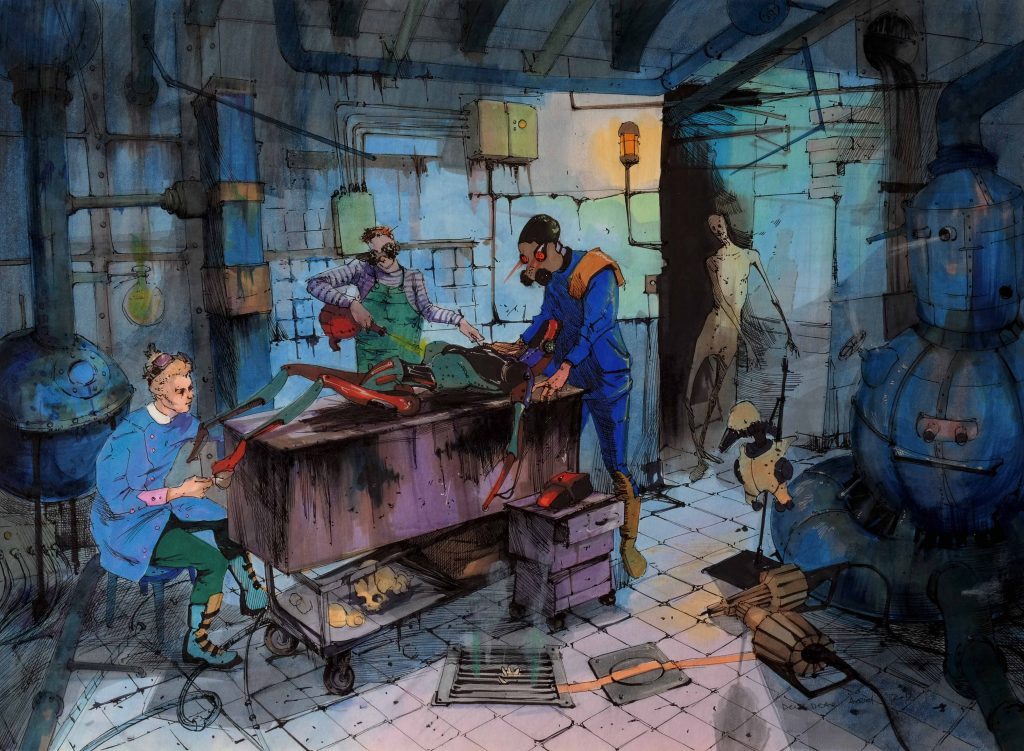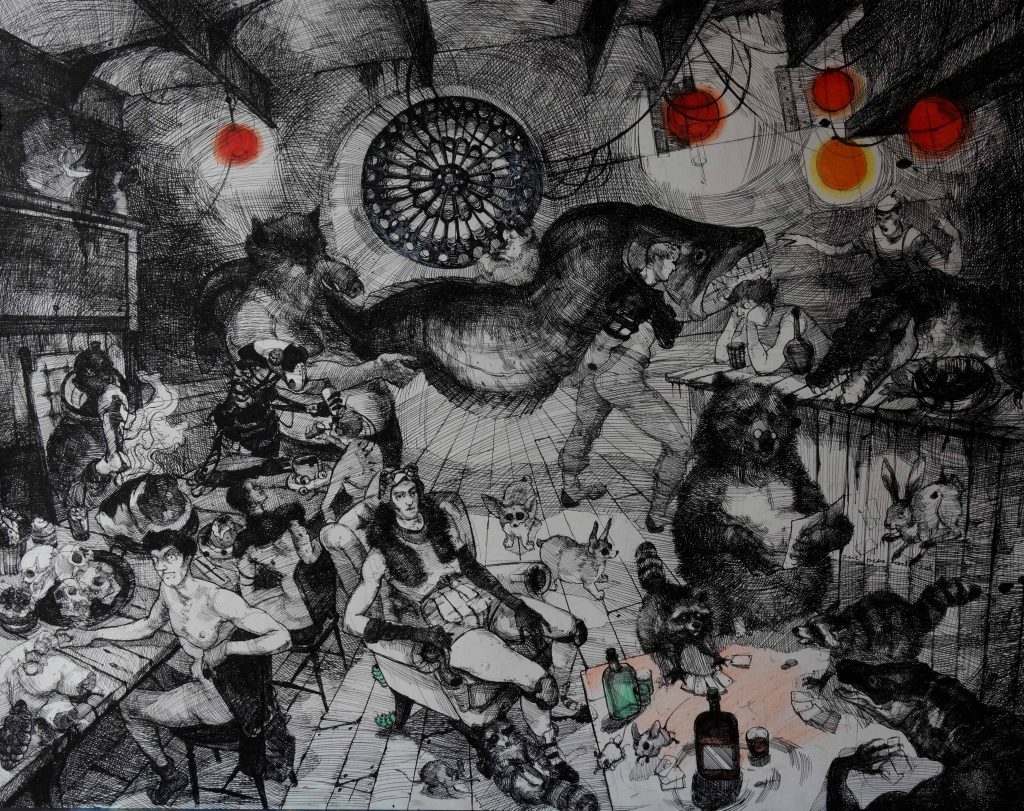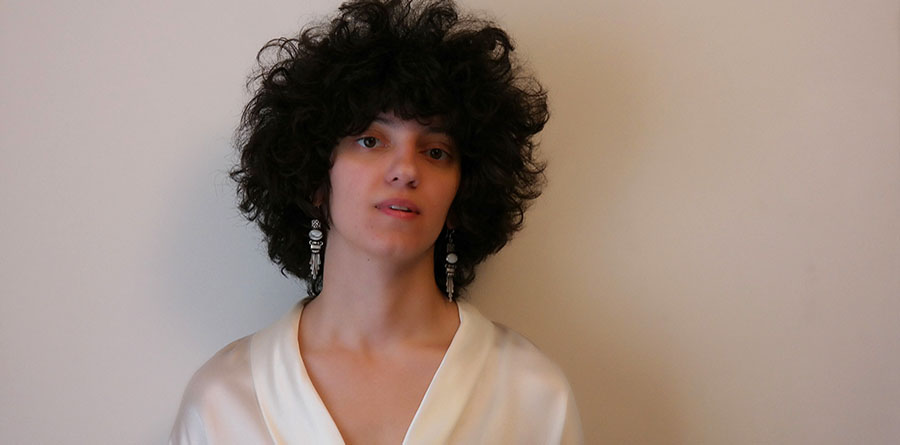Deniz Defne Acerol is truly a storyteller. In her compositions, she uses classical and mythological references with a contemporary critical approach. We talked with Defne who has recently joined the Art50.net family about her life, paintings and ongoing projects.
You were born in Hong Kong. How old were you when you left? What was the impact of this experience on your philosophy?
I stayed in Hong Kong until I was one year old. My family travelled to places like Hong Kong, Bali and Thailand, learning their music, clothing, cuisine, art, i.e. lifestyle which added diversity and richness to their lifestyle. I grew up in Turkey; but thanks to my family and the diversity I saw and heard through them helped me develop my imagination skills and adopt an alternative perspective.
How did you decide to stay in Turkey and study art here?
My family’s decision to come back to Turkey when I was one was due to issues related to work. I descend from a line of architects, painters, designers and sculptors. I began drawing at a very young age, painting the granite and wooden walls of our home. My family was very understanding; they always gave me support in whatever I did. They definitely wanted me to study a field I would enjoy working in. So I chose my childhood passion from a range of alternatives including cooking, sculpture and painting. This way my family helped me turn my childhood passion into my profession. Both my parents always used to tell us stories to develop our imagination. We used to anxiously wait for them to go on to hear how the story continued. And I finally wanted to create my own stories.
Interestingly, I feel like your works combine the effects of classical etching with that of anime/manga. What would you like to tell us about it?
As I was studying at Mimar Sinan University under the mentorship of Nedret Sekban and Ahmet Umur Deniz, I began to add in my paintings my humorous stories in addition to their academic and rational viewpoint. They truly encouraged my approach. This way, stories slowly began to emerge. I also had taken etching lessons from Can Aytekin. Hatching pen was very suitable for me as its effect was similar to etching. As I combined my stories with such a material that made life so much easier, works which combined classical etching and anime effects emerged.

It is evident in your artworks that you are heavily inspired by mythology and fairy tales. The concept of storytelling is currently becoming extremely popular all over the world as well. Do you ever produce works for fairy tale books or storytelling events?
These days I’m working on some projects I have been developing with my older sister. Su studies painting and since she’s also an archeologist, she has very extensive knowledge on mythology and legends. Making use of the latter, we have been writing a story together and I have been drawing illustrations for it.
Do you make use of digital technologies in producing your works? How do you regard digitally produced artworks?
There are very smart and impressive works produced in digital environment. Frankly, as I look at some of them I realize they surprisingly involve a lot of mastership and a lot of things I still need to learn. I’m a Photoshop user and I try to follow the developments in the drawing software market on a daily basis. But in my works where I use traditional materials I don’t make use of Photoshop or similar programs; I don’t want to make my job easier and deprive myself of the progress I will make thanks to challenges.

Artists you admire?
They include Taner Alakuş, Eda Taşlı, Emin Mete Erdoğan and Nick Alm.
Your upcoming works and projects?
I currently enlarge and change the materials of my ‘Fish Market’ series exhibited in Mamut Art Poject 2016, and thus keep working on the same series. I also work on the project I explained earlier.
How did you find out about Art50.net? What are your thoughts on digital platforms?
I had many friends and acquaintances whose works were exhibited on Art50.net. They contacted me after Mamut Art Project and I was very pleased that my works drew attention. Digital platforms are indispensable in today’s world. Even education is available through the internet nowadays. I can reach anything I’m curious about. I think digital platforms offer great advantages to those who know how to use them for research. This way we have the opportunity to access raw and correct information without anyone’s manipulation
Click for the artist’s page.

